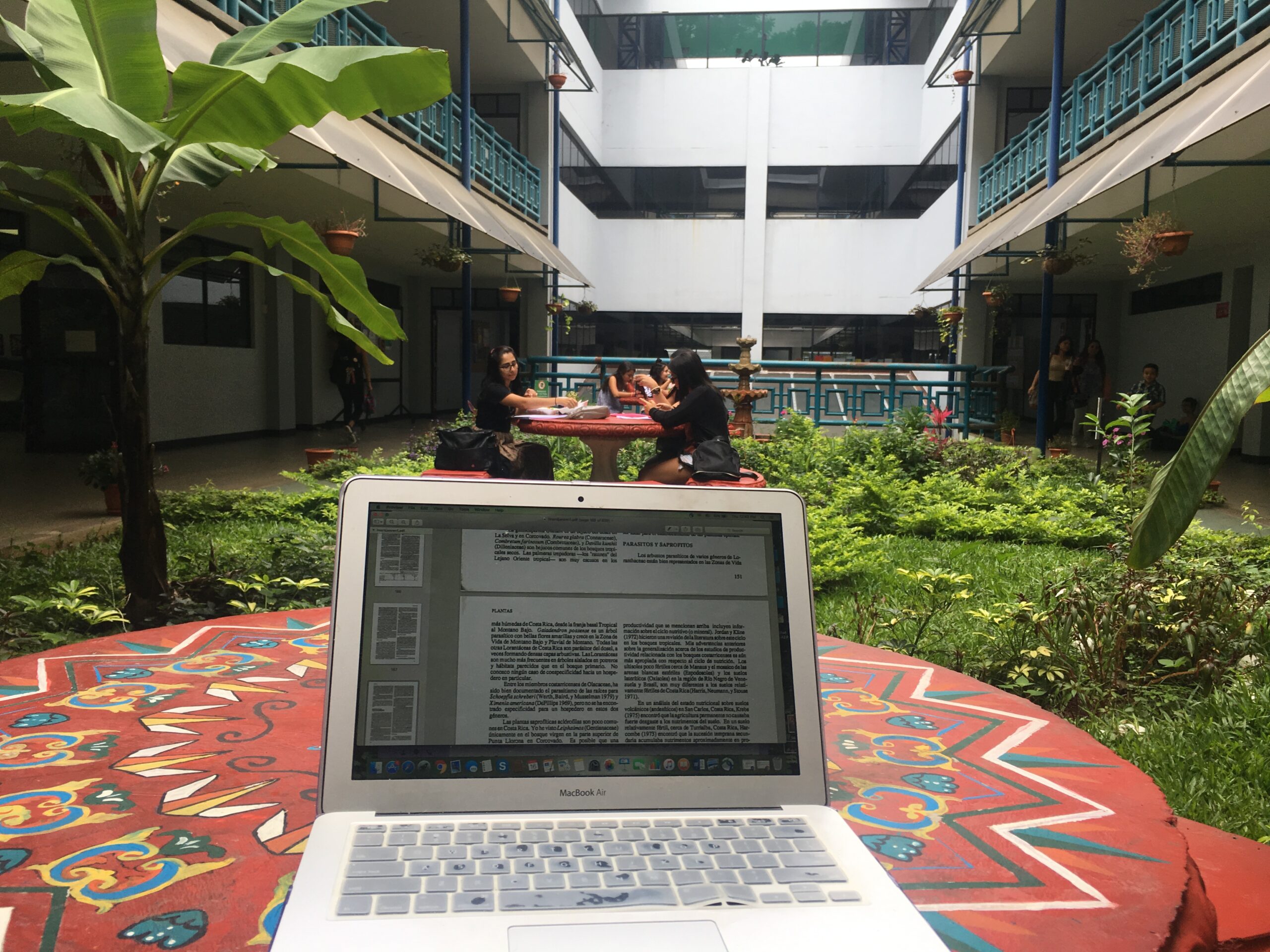The Pros and Cons of STEM Abroad


Writing about STEM is a bit foreign to me, because I only consider myself a sorta-STEM student. I started my college career as a strict social scientist, only to fall in love with environmental studies and ecology my sophomore year. Environmental studies at my home institution is half hard science, half social science – a good mix of my interests. I’m also supplementing my major with a minor in Bio (the ecology courses only of course). In actuality, I am fulfilling the majority of my minor requirements here in Costa Rica by taking 3 hard science courses. My courses – Ecology and Maintenance of Wetlands, Fauna, and Ecology of Restoration – are all within the tropical biology concentration. There are many positives and some challenges that come with taking STEM courses abroad.
Challenges
Wouldn’t you guess, everything is in a different language!
One of the main reasons I chose to come to Costa Rica with IFSA was the full immersion in Spanish, including coursework. That means that not only am I taking 3 advanced level science courses, but I’m taking them in a language that I have some struggles with! Understanding the general flow of the lecture actually comes fairly easily, since the professors (mine at least) don’t speak too fast and everything is contextualized. My biggest challenge thus far has definitely been specific terminology and scientific words. For example, I love wetlands – working in my hometown estuary is what inspired me to pursue ecology. However, I had no idea what the Spanish word for wetland – humedal – was until I translated it online. When it comes to on the spot in class terminology translations, I’ve found that classmates, professors, and google translate are very helpful. I recommend that order as well – usually a classmate knows what I need, if not the professor steps in, and if we’re all stumped then technology comes to the rescue. The professors are also very understanding of the fact that I’m an exchange student and will even check in with me periodically throughout the lecture to make sure I’ve got it all down.
Loooooong classes.
Instead of having a separate lab and practicum session, all of my STEM classes go straight through with both, which means 4 straight hours of class at a time. Luckily, all three of my 4 hour classes only meet once a week. It can get really tough, but I always remind myself it’s the same technical hours as back home, just in a different arrangement. I’ve definitely found myself fighting a snooze a couple of times to be honest. My biggest helper has been taking advantage of the coffee and snack breaks the professors give (Costa Ricans love their cafecito). Also, I’ve found that if I need to get up for a bit and grab some water or stretch, professors are generally very accommodating.
Positives
I LOVE the material.
One of the reasons I came to study abroad in Costa Rica was to expose myself to a curriculum that my home institution doesn’t offer. Although there is an ecology concentration within the biology department, there are only a select few classes, and they aren’t always offered due to lack of interest from students. My three biology classes – Ecology of Restoration, Fauna, and Ecology and Management of Wetlands –have no real equivalent back home. Additionally, I wanted to take the courses in a country that places such a high emphasis on the environment. All of my classes are teaching me so much new information that is so specific to the career I want to pursue as an ecologist, and it’s incredibly exciting to be learning more and more every day. It’s especially awesome being able to take licensure classes for undergraduate credit, which are sort of the equivalent of master’s level classes, and gain a working proficiency in subjects. My one licensure class is Ecology of Restoration, and the largest aspect of the course is actually conducting a small-scale forest restoration and community engagement effort in a nearby mountain area, along with the Professor and a team of his colleagues. To be able to do real work, with a real impact that I’ll be able to see grow before my own eyes is an invaluable experience.
The fieldwork is also way more hands on and practical than what I’m used to – students get to design and carry out their own semester long experiments. As an example, in my Fauna class my group will be conducting an experimental observation and analysis of the ecology of stray dogs around the city. Plus, biology classes have tons of “giras” – or fieldwork trips where students get to go on weekend trips to different biological sites. In my second month of school, I will be visiting Costa Rica’s most prominent wetlands, relocating sea turtle nests near the Manuel Antonio National Park, and exploring an experimentally restored tropical forest. My whole semester is pretty much booked up with giras, and I’m ecstatic to be spending my weekends doing hands on science work (in some gorgeous places).
Science is universal.
Even though my classes do focus a large portion of their curriculum on Costa Rican specific ecology, these are lessons that I can apply anywhere. Being able to identify different types of wetlands, or knowing the biogeographical story of fish migration, or how to successfully plant trees – these are all skills that I will carry with me throughout my career. It’s incredible meeting people from across the world who share my passions. A great way to bridge any cultural gap is through a common passion – and that for me and the students I’m meeting is a passion for the environment.
Gabriela Rossner is a student at George Washington University and studied abroad with IFSA at Universidad Nacional de Costa Rica in Heredia, Costa Rica in Fall 2018.